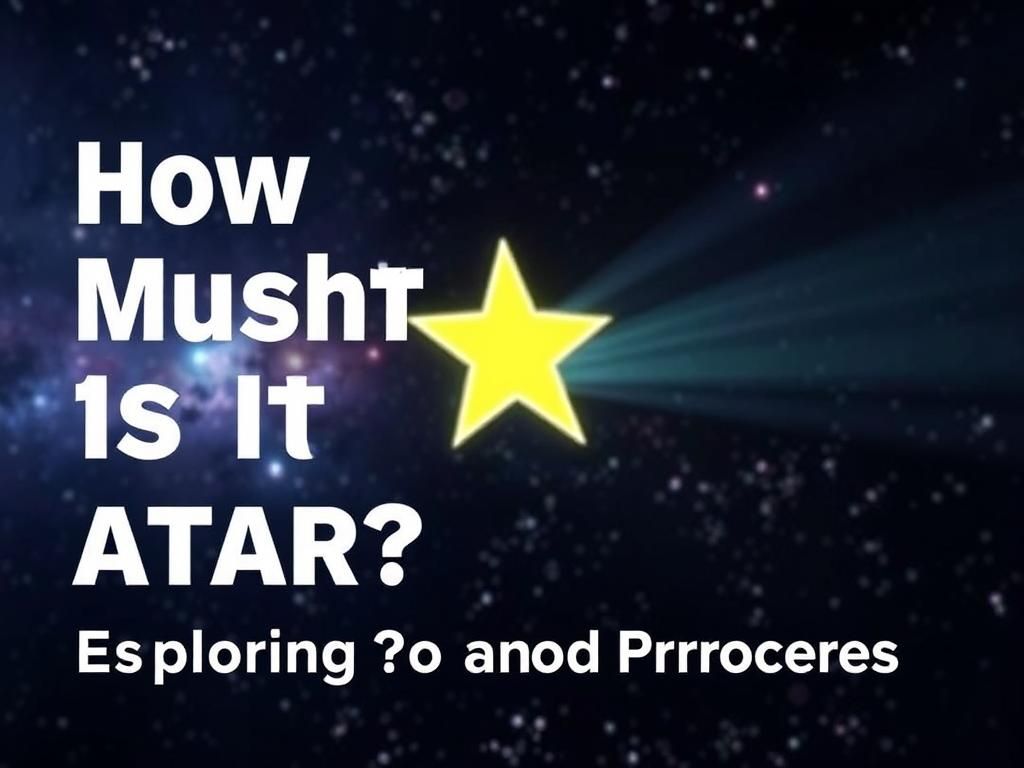In recent years, the idea of buying a star has gained significant popularity as a unique gift or gesture. People seeking to mark special occasions, celebrate milestones, or simply express affection often consider naming a star after someone important in their lives. But how much is it to buy a star? This article aims to explore the various costs, processes, and implications of this celestial endeavor, providing insights for those curious about this trending gift.
The Concept of Buying a Star
Historical Background
The concept of stars has been embedded in mythology and culture for centuries. Stars often symbolize hope, guidance, and eternity. Ancient civilizations viewed them as divine beings or the souls of ancestors. With the dawn of modern astronomy, stars became not only objects of admiration but also subjects of academic study. The commercialization of stars began in the late 20th century, transforming these celestial bodies into marketing opportunities, allowing people to “own” a portion of the universe, even if only symbolically.
Different Organizations Offering Star Naming Services
Various organizations provide star naming services. These businesses vary in reputation, offerings, and costs. Groups like the International Star Registry and the Star Naming Service offer packages that claim to let buyers name a star of their choice. Each organization has its unique registration methods and protocols, which can lead to variations in the overall experience provided to customers.
Cost Breakdown of Buying a Star
Basic Pricing
The cost of buying a star typically ranges from $20 to $200, depending on the agency and the package selected. This price can fluctuate based on factors such as:
- Size: Larger stars or those more significant in cultural meaning, such as brightest stars, might cost more.
- Visibility: Those stars located in more visible regions of the sky or significant constellations often come with higher prices.
- Region of the Sky: Some regions may be more highly priced if they are recognized for certain features or popular celestial events.
Additional Options and Costs
Many organizations offer various packages. The basic package often includes a certificate and a star map. However, for an additional fee, you might receive:
- Frames: Elegant presentations of your star naming certification.
- Plush Toys: Stuffed representation of space or star themes.
- Customization: Personal messages or inscriptions to make your gift more meaningful.
Comparison of Different Providers

When exploring how much it is to buy a star, it’s wise to compare various providers. The table below summarizes some leading star-naming organizations based on price and offerings:
| Provider | Starting Price | Included Services | Extra Options |
|---|---|---|---|
| International Star Registry | $54.95 | Gift package with certificate and star map | Personalized options, frames, and plush toys |
| Star Naming Service | $29.99 | Basic certificate and star lookup info | Framed certificate, plush, and custom messages |
| Star Register | $25.00 | Certificate, star map, and tracking tools | Gift boxes, decorations, and more |
What You Get When You “Buy” a Star
Ownership and Recognition
When considering how much it is to buy a star, it’s crucial to recognize that buyers do not hold legal ownership of a star. Instead, the registration from these agencies serves as a symbolic gesture, meaning the name you choose is not officially recognized by the mainstream scientific community or any governmental agency. The organizations maintain their registries but have no power over the actual celestial bodies.
The Certification Process
Upon purchasing, customers receive a certificate that typically includes the star’s name, coordinates, and a star map to help locate it in the night sky. This certificate proves that you have named a star, but it is essential to remember this is for sentimental purposes rather than legal claim. You can use tools available online or in apps to find your named star based on the provided coordinates, enhancing the overall experience.
Potential Misunderstandings
Many people misunderstandingly believe that purchasing a star provides them with some scientific backing or legal recognition. Organizations emphasize the sentimental value, but potential buyers should understand the gravity of ownership. The star you name will always remain a part of the universe, with no real claim over its identity.
Legality and Ethical Considerations
The Outer Space Treaty

In discussing how much it is to buy a star, one must consider legality. The Outer Space Treaty of 1967 establishes that no one can claim sovereign rights over celestial bodies, indicating stars belong to no nation or individual. It’s a fundamental principle that emphasizes space as the collective heritage of humanity, making any claims of ownership moot.
Potential Ethical Concerns
With commercialization alive, ethical concerns arise about misleading marketing practices associated with star naming. The growing trend may diminish the profound significance of our universe as buyers may perceive they hold tangible ownership. It’s vital for consumers to remain informed and understand what they’re investing in while considering the environmental implications of space commercialization.
Alternatives to Buying a Star
Naming a Star in Dedication
If someone wants to acknowledge a loved one without buying a star, consider options for personalized dedications that avoid commercial practices. You can name a star informally within your circle, creating a sense of shared recognition without the cost. This method values the personal aspects of star-gazing, allowing friends or family members to create their uniquely dedicated stars.
Other Gift Ideas Related to Astronomy
Besides buying a star, many meaningful gift options can enhance someone’s appreciation for astronomy:
- Star Maps: Personalized maps that illustrate constellations visible on specific dates.
- Telescope Purchases: High-quality telescopes can provide an awe-inspiring view of celestial bodies.
- Experiences: Consider gifting experiences like stargazing events or planetarium visits.
Conclusion
After exploring how much it is to buy a star, it’s evident that while the idea holds sentimental value, its implications extend beyond simple ownership. The costs can vary, but understanding what you receive is crucial for making informed decisions. Instead of purchasing ownership of a star, consider celebrating the night sky’s beauty in meaningful, ethical ways that enable a genuine connection with our universe.
FAQs
- What is the cheapest way to name a star? Various companies offer competitive pricing, with some starting around $20. Researching different providers may help you find budget-friendly options.
- Are bought stars recognized by astronomers? No, while you can name a star for personal purposes, actual ownership or scientific recognition does not exist.
- Can I buy a star for a specific event or occasion? Yes, many organizations allow you to customize the experience, making it a lovely gesture for anniversaries, birthdays, or memorials.
- Is there a legal document when I buy a star? You receive a certificate noting the name and details of your star, but it is not a legal document granting ownership.
- What if I want to change the name of the star? You can usually name a star only once per registry, and changing a name typically isn’t recognized.
- Do I need to register the star through an organization? While commercial businesses offer star-naming services, informal dedication amongst friends or family does not require registration.
- Is it possible to buy a constellation? No, constellations consist of multiple stars, and ownership claims apply individually.
- Can I gift a star to someone? Yes, many star-naming packages allow for gifting or dedicating a star to someone special.
- Are there any ethical implications of buying a star? Yes, it raises questions about the commercialization of celestial bodies and the potential for misleading claims.
- What are better alternatives for stargazing gifts? Consider telescopes, star maps, or experiential gifts like planetarium visits for more meaningful connections to astronomy.
References
For those seeking more information, check out the official websites of the International Star Registry and AstroBin for their offerings and educational resources on astronomy.


